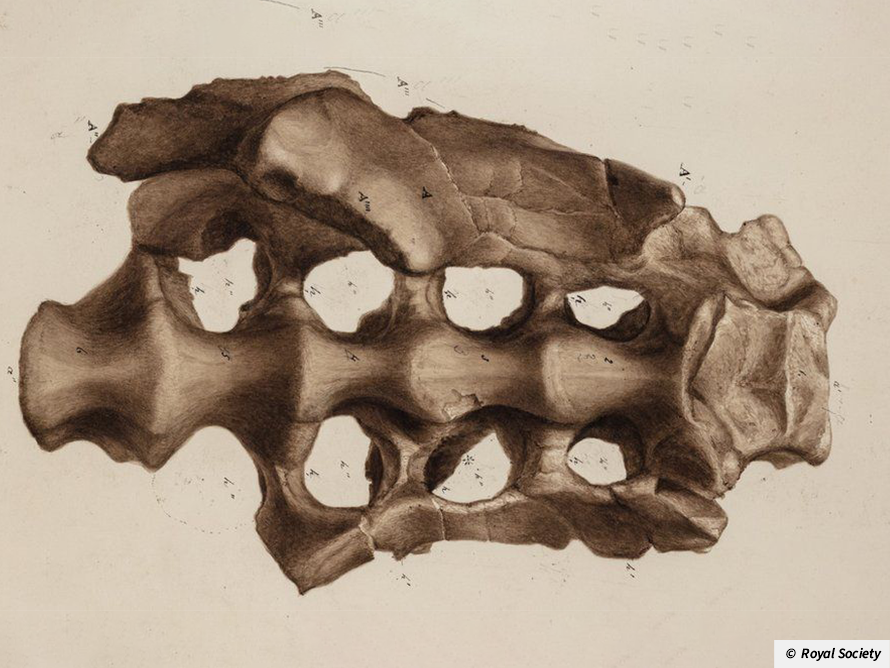Do women deserve more credit? The Royal Society has digitalised 250,000 historical scientific texts. They shine a light on how women have often been pushed to science’s margins.
Incredible objects that made science history
 Findings: In the 19th Century, fossil hunters sent drawings of their discoveries to the Royal Society.
Findings: In the 19th Century, fossil hunters sent drawings of their discoveries to the Royal Society. Glossary
Sussex - A county in the south east of England.
Geologist - A scientists who studies rocks and other materials that make up the Earth's surface.
Oxfordshire - A county in England.
Galileo - An Italian astronomer of the fifteenth and sixteenth centuries. He clashed with the Catholic Church over his belief that the Earth revolves around the Sun, and was eventually forced to recant his views.
New England - A region of the northeast USA including the states of Maine, Massachusetts, New Hampshire, Vermont, Rhode Island and Connecticut. Some of the first European settlers in the region were people from England.
Nebula - A cloud of gas or dust in outer space.
Ada Lovelace - An English mathematician known as the first computer programmer.
Marie Curie - A Polish-French pioneer in the study of radioactivity and the first woman to win a Nobel Prize.
Nobel Prizes - A set of prizes, laid out in the will of Swedish chemist Alfred Nobel, given each year to people who "have conferred the greatest benefit to humankind".
Astrophysicist - Scientists who try to understand the contents of the universe.
